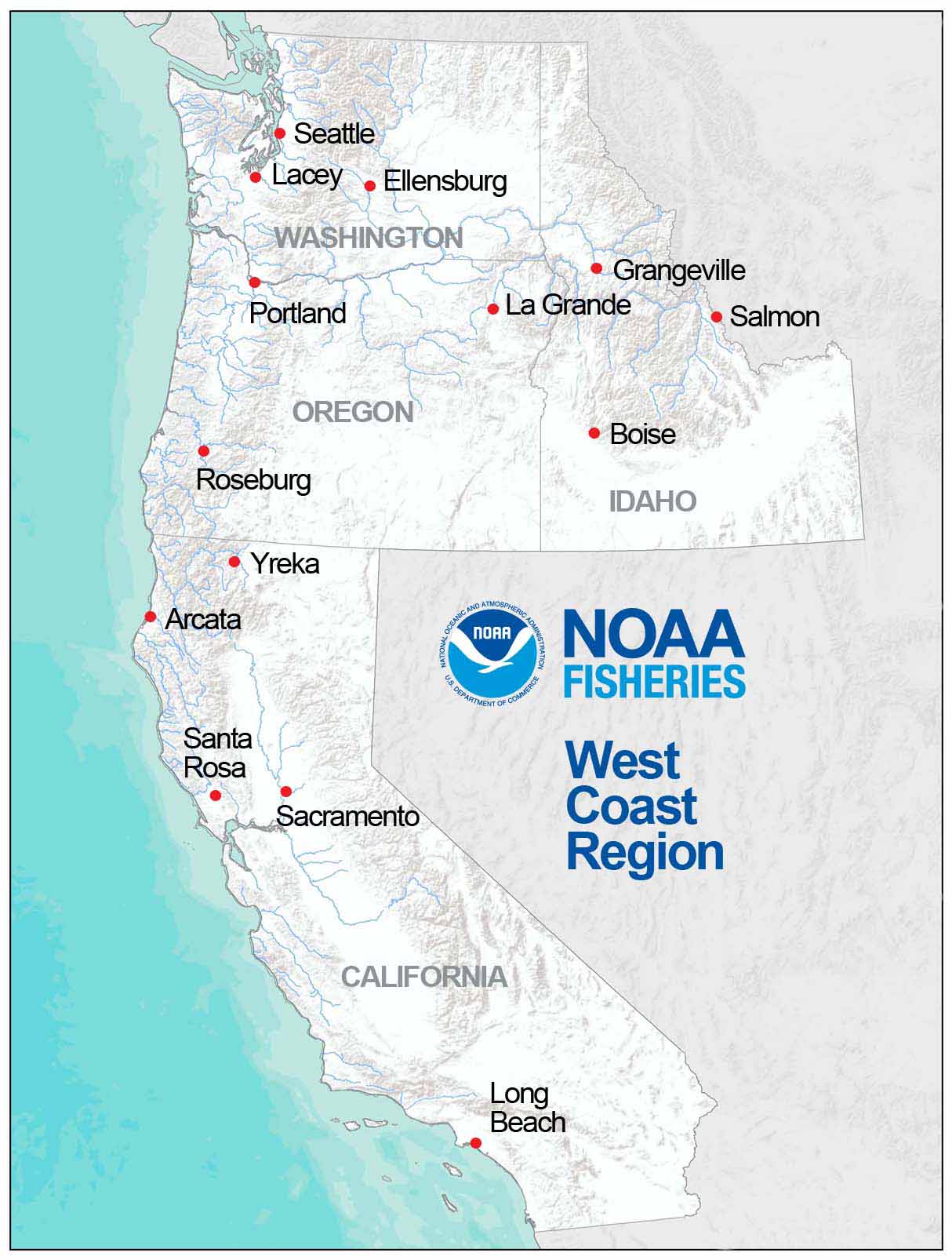NOAA Fisheries is uniting their Northwest and Southwest Regions to create a single organizational structure: the West Coast Region.
NOAA Fisheries manages, conserves and protects marine resources. This mission includes protecting threatened species and marine mammals and ensuring that fisheries are sustainably managed across a broad geography. On the West Coast, the organization works with partners in the inland streams and habitats of Washington, Oregon, Idaho and California, as well as in adjacent coastal waters.
The scope of NOAA Fisheries’ work on the West Coast is not changing with this new structure. Rather, the integration opens the opportunity to pursue closer program coordination throughout the West Coast, promoting appropriate levels of programmatic consistency, efficiency, and the allocation of available resources to the high priority challenges, the organization said.
NOAA Fisheries said the new structure will allow them to work more efficiently with domestic and international partners in managing groundfish fisheries, salmon, halibut, whiting, highly migratory species, such as tunas and sharks, and coastal pelagic species, such as sardines.
The Region will continue close collaboration with the Southwest Fisheries Science Center, in La Jolla, and the Northwest Fisheries Science Center, located in Seattle.
Will Stelle is the new West Coast Regional Administrator, and Barry Thom is Deputy Regional Administrator. All office locations will remain open in Washington, Idaho, Oregon, and California. But the integrated region has a new configuration. New Protected Resources and Sustainable Fisheries Divisions will focus on coast-wide program responsibilities, including all of the agency’s authorities under the Magnuson-Stevens Act, Endangered Species Act, and Marine Mammal Protection Act. In addition, four area offices will focus on protecting and recovering salmon and steelhead and their habitats, as well as other NOAA trust resources, in specific geographic areas.
Read the full announcement at NOAA Fisheries>>







